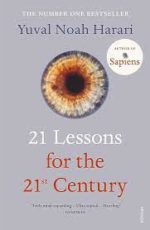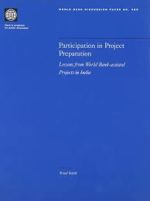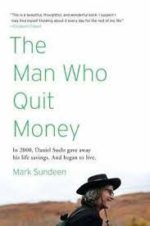| Author | LawAfrica |
|---|
Constitution of Kenya
KShs 490.00
Other books in the series:
- Civil Procedure Statutes
- Commercial Law Statutes
- Criminal Law Statues
- Family Law Statutes
- Labour Law Statutes
- Legal Profession
- Penal Code
- Property Law Statutes
1 in stock
Related products
-
21 Lessons for The 21St Century Paperback
KShs 1,695.00The future is here. Learn to live in it.
In twenty-one bite-sized lessons, Yuval Noah Harari explores what it means to be human in an age of bewilderment.
How can we protect ourselves from nuclear war, ecological cataclysms and technological disruptions? What can we do about the epidemic of fake news or the threat of terrorism? What should we teach our children?
Yuval Noah Harari takes us on a thrilling journey through today’s most urgent issues. The golden thread running through his exhilarating new book is the challenge of maintaining our collective and individual focus in the face of constant and disorienting change. Are we still capable of understanding the world we have created?
‘Fascinating… compelling… [Harari] has teed up a crucial global conversation about how to take on the problems of the 21st century’ Bill Gates, New York Times
‘Truly mind-expanding… Ultra-topical’ Guardian
‘21 Lessons is, simply put, a crucial book’ Adam Kay
-
District Laboratory Practice in Tropical Countries
KShs 21,240.00This new edition includes an update on HIV disease/AIDS, recently developed HIV rapid tests to diagnose HIV infection and screen donor blood, and current information on antiretroviral drugs and the laboratory monitoring of antiretroviral therapy. Information on the epidemiology and laboratory investigation of other pathogens has also been brought up to date. Several new, rapid, simple to perform immunochromatographic tests to assist in the diagnosis of infectious diseases are described, including those for brucellosis, cholera, dengue, leptospirosis, syphilis and hepatitis. Recently developed lgM antibody tests to investigate typhoid fever are also described. The new classification of salmonellae has been introduced. Details of manufacturers and suppliers now include website information and e-mail addresses. The haematology and blood transfusion chapters have been updated, including a review of haemoglobin measurement methods in consideration of the high prevalence of anaemia in developing countries.
-
Participation in Project Preparation: Lessons from World Bank-Assisted Projects in India (World Bank Discussion Papers)
KShs 1,000.00This study analyzes the extent to which the India program is meeting the World Bank’s objective of mainstreaming participatory approaches in project preparation and design. It includes ten projects in which participation was an overall project objective. These projects provided “good practice” lessons from a variety of social and natural resource management sectors. -
I Have Seen the Promised Land: A Utopian Novella
KShs 395.00This book, a utopian novella set in the year 2026, is part of a trilogy along with The History of the Culture of War and World Peace through the Town Hall: A Strategy for the Global Movement for a Culture of Peace. Together they put forward a comprehensive and feasible plan to achieve world peace. They are based on the author’s responsibility for the United Nations International Year for the Culture of Peace (2000), the Manifesto 2000 signed by 75 million people, and the United Nations Declaration and Programme of Action on a Culture of Peace. This novella foresees the coming collapse of the global economy and nation states as an opportunity to refound the United Nations on the basis of those who understand the need for a culture of peace: individuals, civil society organizations and local governments. It provides an imaginative and personalized account of how the world has come to a culture of peace and explores the various contradictions involved.
-
Information Governance and Assurance: Reducing risk, promoting policy
KShs 10,780.00This comprehensive textbook discusses the legal, organizational and ethical aspects of information governance, assurance and security and their relevance to all aspects of information work.
Information governance describes the activities and practices which have developed to control the use of information, including, but not limited to, practices mandated by law. In a world in which information is increasingly seen as a top-level asset, the safeguarding and management of information is of concern to everyone. From the researcher who is responsible for ethical practices in the gathering, analysis, and storage of data, to the reference librarian who must deliver unbiased information; from the records manager who must respond to information requests, to the administrator handling personnel files, this book with equip practitioners and students alike to implement good information governance practice in real-world situations.
Key topics covered include:
Information as an asset
The laws and regulations
Data quality management
Dealing with threats
Security, risk management and business continuity
Frameworks, policies, ethics and how it all fits together.
Readership: Fully supported by examples, discussion points and practical exercises, this is essential reading for everyone who needs to understand, implement and support information assurance policies and information governance structures. It will be particularly valuable for LIS students taking information management and information governance courses, and information professionals with an advisory or gatekeeping role in information governance within an organization.
-
Textbook of Global Child Health, 2nd Edition
KShs 9,562.00The second edition of the American Academy of Pediatrics Textbook of Global Child Health is pleased to contribute toward international efforts to improve the lives of the next generation. This new edition will help prepare and support child health professionals as they join international efforts on behalf of children.
A large multinational team of authors has joined together to produce the 2nd edition of this award-winning textbook, which focuses on 3 key areas:
- Foundational understanding of societal factors related to health and disease
- Appropriate care of children traveling internationally
- Clinical management of children in resource-limited areas
New in the 2nd edition:
- 29 updated chapters and sections
- New chapters on cardiology, neurologic disorders, nephrology, emergency medicine and critical care, and hematology/oncology
-
Handbook of Agricultural Entomology
KShs 16,380.00Handbook of Agricultural Entomology by Helmut van Emden is a landmark publication for students and practitioners of entomology applied to agriculture and horticulture. It can be used as a reference and as a general textbook.
The book opens with a general introduction to entomology and includes coverage of the major insects (and mites) that cause harm to crops, livestock and humans. The important beneficial species are also included. Organisms are described in a classification of insect Orders and Families. The emphasis is on morphological characters of major taxonomic divisions, “spot characters” for the recognition of Families, and the life histories, damage symptoms and economic importance of the various pest species.
The book is beautifully illustrated in full colour with more than 400 figures showing both the organisms and the damage caused to plants with diagnostic characters indicated by arrows. Coverage is world-wide and includes much material stemming from the vast personal experience of the author.
-
The Man Who Quit Money Paperback
KShs 1,000.00In 2000, Daniel Suelo left his life savings-all thirty dollars of it-in a phone booth. He has lived without money-and with a newfound sense of freedom and security-ever since. The Man Who Quit Money is an account of how one man learned to live, sanely and happily, without earning, receiving, or spending a single cent. Suelo doesn’t pay taxes, or accept food stamps or welfare. He lives in caves in the Utah canyonlands, forages wild foods and gourmet discards. He no longer even carries an I.D. Yet he manages to amply fulfill not only the basic human needs-for shelter, food, and warmth-but, to an enviable degree, the universal desires for companionship, purpose, and spiritual engagement. In retracing the surprising path and guiding philosophy that led Suelo into this way of life, Sundeen raises provocative and riveting questions about the decisions we all make, by default or by design, about how we live-and how we might live better.










Be the first to review “Constitution of Kenya”